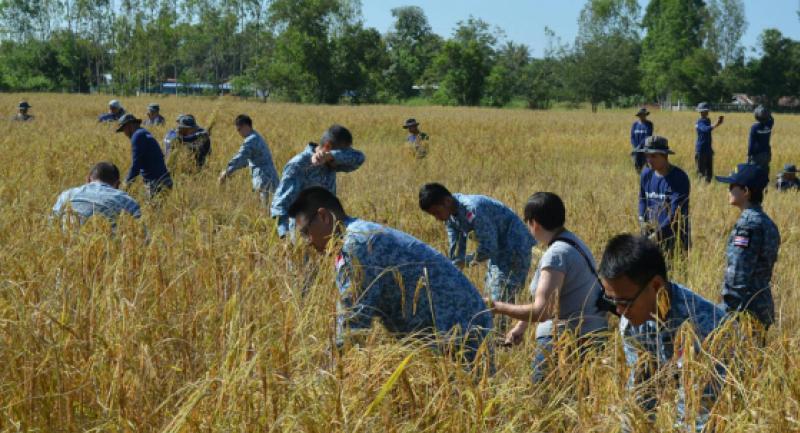PM unveils new plan with focus on ‘smart farmers’

Under modernisation programme, farmers will have to adapt or lose government aid: prayut
PRIME MINISTER Prayut Chan-o-cha has unveiled the new features of a 20-year programme to modernise the country’s agricultural sector to solve depressed prices and other chronic problems on a longer-term basis.
During his visit to the Agriculture and Agricultural Cooperatives Ministry, Prayut said the government should review the programme’s targets every five years with the objective of upgrading agriculture workers into “smart farmers”.
The government will also promote big-size farms that gain from economies of scale and higher bargaining power when dealing with middlemen, while more than 800 farm cooperatives nationwide will play a major role in implementing this policy.
Under this modernisation programme, Prayut said, farmers will be encouraged to change and if they refuse, they will not get any aid from the government.
Thirapat Prayoonsithi, the ministry’s permanent secretary, said the aim was to promote a total of 14,500 big-size farms for rice and other economic crops using innovative farming methods and sustainable water-resource management skills.
Based on an experiment conducted on 600 big-size farms covering 1.5-million rai, production costs have dropped by about 18 per cent while output has risen by an estimated 15 per cent, according to Thirapat.
Thirapat said the ministry has also helped upgrade a total of 800 agricultural cooperatives nationwide to play a major role in implementing this policy, which will lead to a new generation of smart farmers whose incomes will be comparable to other occupations.
According to royal initiatives on the Philosophy of Sufficiency Economy, farm cooperatives are a crucial mechanism in modernising the agriculture sector.
Prayut said food and farm security is a crucial element of the country’s development strategy covering the next two decades, so the government has formulated policies to upgrade the farm sector similar to other parts of Thai society and economy.
Modernisation programme
In this context, Thai farmers will become more knowledgeable and the modernisation programme will be evaluated every five years so as to make further improvement,
“Unless we tackle the issues on a long-term basis, problems like drought, floods and farmers’ low income will be repeated every year,” he said.
Prayut said short-term measures such as helping farmers sell their rice directly to consumers are aimed at increasing farmers’ bargaining power. However, the volume of rice sold so far is relatively small because Thailand’s annual rice output is huge, averaging 16 million to 17 million tonnes per year. Hence, most of the rice paddy will still be sold to millers and middlemen. In addition, he said, rice farmers have to consider diversifying into other cash crops to avoid over-production of rice, which only brings the prices down. This oversupply has required the government to intervene to help farmers, whose production costs are close to prevailing paddy prices resulting in losses.
The latest government intervention programmes are worth close to Bt60 billion, allowing farmers to store rice paddy in their own barns and get low-interest loans from the government. If they do not have barns, they may store their rice paddy in facilities provided by the government.
Once market prices recover from the current 10-year low of Bt6,000 to 7,000 per tonne, farmers have a choice of selling their crop at a better price. However, the government has indicated that it will not encourage farmers to grow more rice due to the current tendency to over-produce, as well as the existing huge government-owned rice inventory carried forward from the previous government’s rice-pledging scheme.
